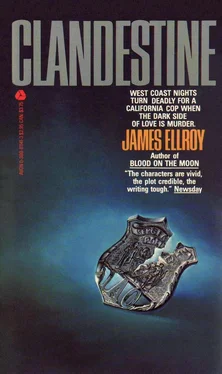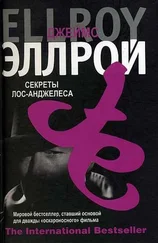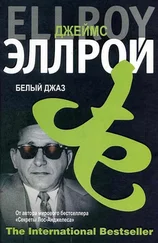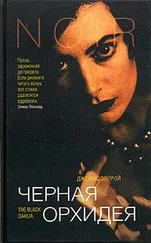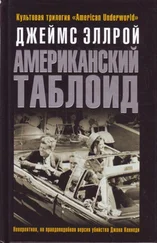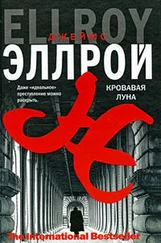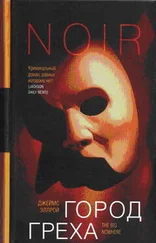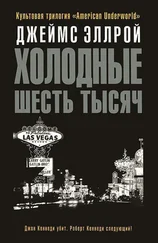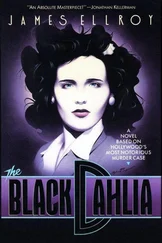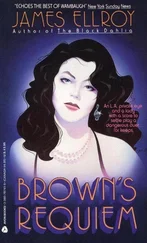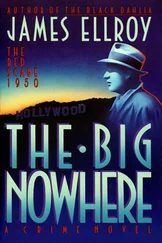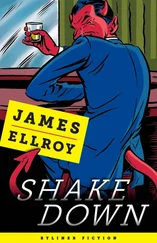The prelate showed up a minute later. He was a robust, stocky man with jet black hair and a very dark, rough-looking razor stubble. He was probably somewhere in his forties, but again, his age was hard to discern. I stood as he entered the room. We shook hands, and as he motioned me back to the chair he gave me a look that said he was all business. He sat down and let loose with a startling belch. It was a superb icebreaker.
“Jesus,” I said spontaneously.
The man laughed. “No, I’m Andrew. He wasn’t even one of the apostles. Are you versed in the scriptures, Mr. Underhill?”
“I used to be. I was forced into it. But I’m not what you’d call a believer.”
“And your family?”
“I don’t have a family. My wife is Jewish.”
“I see. How did Will Berglund impress you?”
“As a guilt-ridden man. A decent, gentle man. Possibly an enlightened man.”
Andrew smiled at me. “What did Will tell you about our order?” he asked.
“Nothing,” I said. “Although I admit it must have some appeal to the intellect or an intelligent man like Berglund wouldn’t have been so hopped up on it. What interests me, though, is why John DeVries—”
“We’ll talk about John later,” Andrew said, interrupting me. “What I am interested in is what you will do with any information I give you.”
The ascetic surroundings and Andrew’s patient voice started to irritate me and I felt the periphery of my vision begin to blacken. “Look, goddamn you,” I said harshly, “John DeVries was murdered. So was his sister. These are lives we’re talking about, not biblical homilies. I...” I stopped.
Andrew had gone pale beneath his dark stubble, and his huge brown eyes were clouding over with grief. “Oh, God, Marcella,” he whispered.
“You knew her?”
“Then it was true...”
“Then what was true, goddamnit?!”
Andrew faltered while I tried to control my excitement. He stared at his hands. I gave him a few moments to calm himself, then said gently: “Then what was true, Andrew?”
“Marcella told my wife and me last month that she was in danger, that her husband wanted custody of their son, that he was going to kidnap him.”
“Last month? You saw Marcella Harris last month? Where? ”
“In Los Angeles. Some awful town east of L.A. El Monte. Marcella phoned my wife. She said she needed to see us, that she needed spiritual counsel. She wired us plane fare and we flew to Los Angeles. We met Marcella at a bar in El Monte, my—”
“On a Saturday night? June 21? Does your wife have a blond ponytail?”
“Yes, but how do you know that?”
“I read it in the papers. The L.A. cops were looking for you as suspects in Marcella’s murder. She was killed late that very night, after she left you at the bar. You should have listened, Andrew.”
I let that sink in, watching Andrew sink into his grief. The calmness of that grief was unnerving: I got the feeling he was already bartering with God for a way off the hook. “When did you first meet Marcella?” I asked gently. “Tell me how she came to call on you for help last month.”
Andrew hunched over in his chair in an almost supplicant’s position. His voice was very soft: “Marcella came to the order four years ago. Will Berglund had told her about us. She was distraught, she told me that something terrible was going to happen and she was powerless to stop it. I told her that the Clandestine Heart Order is a spiritual discipline based on anonymous good deeds. We have a few wealthy patrons who own a print shop that prints up our little tracts, but basically we operate our farm here and support ourselves and give our food away to hungry people. We have three hours of silent meditation every day and a day of fasting every week. But mostly we journey to the cities. We put our little tracts in missions on skid rows, in jailhouse chapels, wherever there are lonely, despairing people. We walk city streets, picking lonely, drunken people out of gutters, feeding them, and giving them comfort. We don’t actively seek recruits — ours is a severe discipline, and not for the capricious. And we are anonymous: we take no credit for the good we do. I told Marcella all this when we talked back in ’51. She told me she understood, and she did. She was a tireless worker. She picked rag women up off the street and bathed and fed them, spending her own money to buy them clothes. She tendered love as no one I have ever seen. She waited outside the gates of the Milwaukee County Jail and drove the released prisoners into the city and talked to them and bought them dinners. She stood guard for twenty-four-hour stretches outside the emergency room at Waukesha General Hospital, offering her nursing skills for free and praying for accident victims. She gave and she gave and she gave, and in so doing transformed herself.”
“Into what, Andrew?”
“Into someone who accepted life, and herself, on God’s terms.”
“And then?”
“And then she left, as abruptly as she came.”
“How long was she with the order?”
“For about six weeks.”
“She left in August of ’51?”
“Yes... Yes, that’s correct.”
Something crashed within me. “I’m sorry I was abusive,” I said.
“Don’t be sorry, you want justice.”
“I don’t know what I want. Johnny DeVries came here independently of his sister, is that right?”
“Yes. Will Berglund sent him also. I think it was around Christmas of ’49. He was no Marcella. He was a volatile drug addict with a lot of self-hatred. He tried to buy his way in here. Dirty money he’d earned from selling drugs. He made half-hearted attempts to listen to our message, but—”
“Have you ever operated an orphanage here?” I interjected.
“No, that requires a license. We serve anonymously, Mr. Underhill.”
“Did John DeVries ever mention a woman named Margaret Cadwallader? Or a child he fathered with her out of wedlock?”
“No, mostly John talked about chemical formulas and the women he had sexual relations with, and—”
I stabbed in a darkness that was becoming increasingly brighter. “And he left his memoirs here, right, Andrew?”
Andrew hesitated. “He left a carton of personal effects, yes.”
“I want to go through it.”
“No, no. I’m sorry, you can’t. That’s absolute. John entrusted them to the order. I went through the carton and saw that there were no drugs, so I did John the decency of assuring him that his things would always be safe here. No, I can’t let you see them.”
“He’s dead, Andrew. Other lives may be at stake in this thing.”
“No. I won’t belie his trust. That’s final.”
I reached inside my coat and into my waistband and pulled out my .38. I leaned over and placed the barrel in the middle of Andrew’s forehead. “You show me that carton, or I’ll kill you,” I said.
It took him a moment to believe me. “I have work to do that requires me to acquiesce to you,” he said.
“Then you know why I have to do what I’m doing,” I said.
The carton was musty and mildewed and covered with spider-webs. And it was heavy; reams and reams of paper weighted down with dampness. I hauled it out to my car under Andrew’s watchful eye. He gave me some sort of two-handed benediction as I locked it in my trunk.
“Shall I return it to you?” I asked.
Andrew shook his head. “No, I think you’ve let me off the hook as far as God is concerned.”
“What was that sign you made?”
“I was asking for God’s mercy on readers of dark secrets.”
“Have you read any of it?”
“No.”
“Then how do you know what it is?”
“You wouldn’t have come here if those pages contained joy.”
Читать дальше
